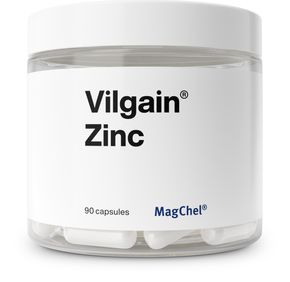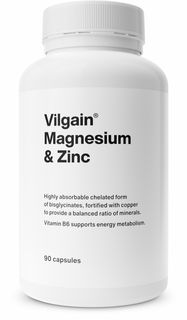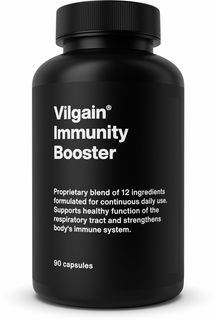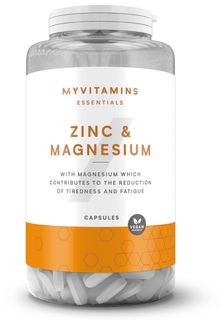

Effects of zinc
Zinc is essential for the normal function of all cells in the human body and is directly and indirectly involved in up to 300 biochemical reactions. The main functions of zinc include:
- Involvement in immune system function,
- maintaining normal bone, nail, hair and skin health,
- maintaining normal fertility and potency,
- skin regeneration and wound healing,
- ensuring normal nutrient metabolism, and
- maintaining normal blood sugar levels.
Zinc is one of the most important elements, but our bodies cannot make it on their own, nor can they store it. It is therefore necessary to take it regularly in sufficient quantities in food or as a dietary supplement.
How to recognize zinc deficiency?
Zinc deficiency is a risk especially for pregnant women, adolescents or athletes. People with chronic diseases, vegans or vegetarians are also at risk. The most common manifestations are:
- increased acne formation,
- impaired skin, hair and nail quality,
- weakened immunity,
- reducedperformance and lack of energy, or
- digestive problems.
How to take zinc?
The recommended daily dose of zinc is considered to be 10 mg. In exceptional cases (acne treatment, injuries), higher doses of zinc can be taken - usually following consultation with a doctor.
In the long term, however, one should beware of possible zinc overdose. This is most often manifested by digestive problems or impaired immunity. Excess zinc in the body can also cause poorer absorption of other minerals, especially copper and iron.
Zinc in food
Zinc occurs naturally in both animal and plant sources. Red meat, shellfish, fish and dairy products are generally considered the richest sources of zinc. From plant sources, it is worth mentioning legumes, nuts, seeds or whole grain cereals.


